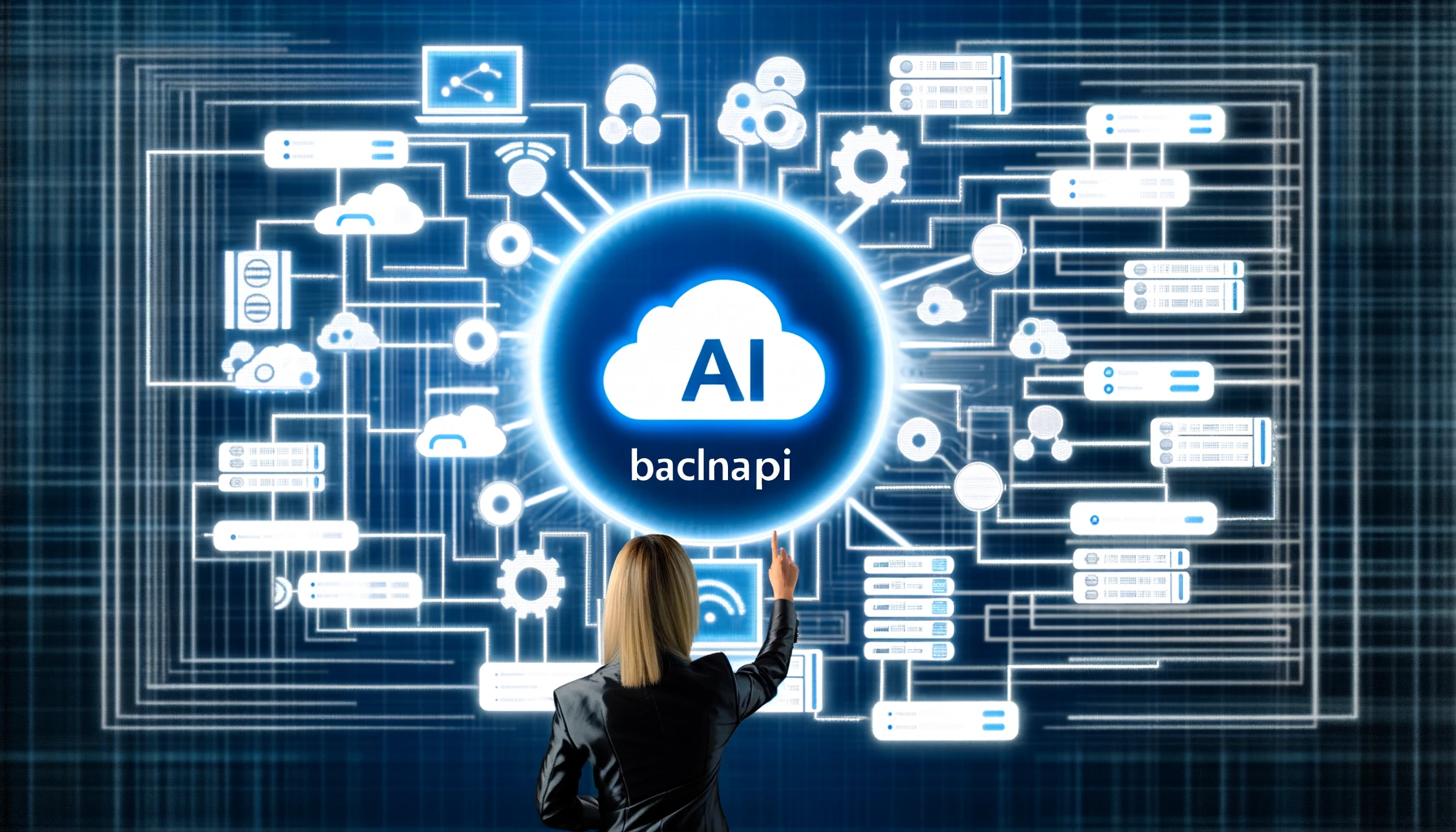Harnessing Artificial Intelligence in Enterprise Software with BaaS: A Technical Dive into StormAPI
In the dynamic realm of enterprise software development, the integration of artificial intelligence (AI) has transitioned from a forward-thinking strategy to a fundamental component of digital transformation. Backend as a Service (BaaS) platforms, particularly those like StormAPI, are at the forefront of this shift, offering a seamless conduit for embedding AI capabilities into enterprise applications. This article provides a deep technical exploration into how BaaS platforms, exemplified by StormAPI, are revolutionizing the incorporation of AI into enterprise software, enhancing efficiency, personalization, and decision-making.
AI Integration Challenges in Enterprise Software
The integration of AI into enterprise applications presents several technical challenges, including data scalability, model training and deployment, real-time data processing, and maintaining data privacy and security. Traditional approaches often involve substantial investment in infrastructure and specialized talent, which can be prohibitive for many enterprises.
StormAPI: Pioneering AI Integration with BaaS
StormAPI, a cutting-edge BaaS platform, addresses these challenges head-on by providing a comprehensive suite of tools and services designed to facilitate the smooth integration of AI into enterprise applications. Below, we dissect the technical mechanisms by which StormAPI enables AI functionalities:
1. AI Model Hosting and Execution
StormAPI offers a robust environment for hosting and executing AI models. By providing scalable compute resources, StormAPI allows enterprises to deploy complex AI algorithms without the need for extensive hardware investments. This capability is crucial for applications requiring real-time data analysis, predictive modeling, and other AI-driven functionalities.
2. Data Management for AI
At the core of any AI implementation is the need for vast amounts of data. StormAPI excels in providing scalable and secure database solutions that support the data requirements of AI algorithms. Features such as real-time data synchronization, automated backups, and encryption ensure that data is not only available but also protected.
3. AI-Powered Analytics
StormAPI incorporates AI-powered analytics tools that enable enterprises to extract meaningful insights from their data. These tools utilize machine learning algorithms to perform trend analysis, sentiment analysis, and predictive analytics, transforming raw data into actionable intelligence.
4. Seamless Integration with AI Services
Understanding the diversity of AI needs, StormAPI provides seamless integration with external AI services and APIs. This flexibility allows enterprises to leverage specialized AI functionalities, such as natural language processing (NLP), computer vision, or advanced machine learning models, directly within their applications.
5. Ensuring AI Ethics and Compliance
As AI becomes more prevalent, issues of ethics and compliance come to the forefront. StormAPI addresses these concerns by incorporating mechanisms to ensure that AI implementations adhere to ethical guidelines and regulatory standards. This includes features for data anonymization, bias detection, and ensuring transparency in AI decision-making processes.
Technical Implementation: A Use Case with StormAPI
Consider an enterprise seeking to enhance its customer service platform with AI-driven chatbots for real-time customer interaction. By leveraging StormAPI, the enterprise can quickly integrate an NLP model to power the chatbot, hosted on StormAPI’s scalable compute resources. The chatbot utilizes StormAPI’s real-time database to access customer data, providing personalized responses based on customer history and preferences. Furthermore, integration with StormAPI’s AI-powered analytics allows the chatbot to learn from interactions, improving its responses over time. Throughout this process, StormAPI ensures that all data used and generated by the AI complies with GDPR and other regulatory standards, maintaining customer trust.
Advantages and Outcomes
The technical implementation of AI in enterprise software via StormAPI yields numerous benefits:
- Enhanced Efficiency: Automating routine tasks with AI frees up human resources for more complex activities, increasing overall operational efficiency.
- Improved Personalization: AI algorithms analyze customer data to provide personalized experiences, enhancing customer satisfaction and loyalty.
- Informed Decision-Making: AI-powered analytics offer deep insights into business operations, market trends, and customer behavior, supporting strategic decision-making.
- Scalability: StormAPI’s infrastructure supports the scaling of AI functionalities as the enterprise grows, ensuring that AI implementations remain robust and responsive.
- Security and Compliance: With built-in security features and compliance mechanisms, enterprises can confidently deploy AI solutions, knowing their data is protected.
The integration of artificial intelligence into enterprise software represents a significant leap forward in operational efficiency, customer engagement, and strategic decision-making. BaaS platforms, exemplified by StormAPI, provide a powerful and flexible foundation for implementing AI functionalities in enterprise applications. By addressing the technical challenges associated with AI integration, offering scalable and secure infrastructure, and ensuring compliance with ethical and regulatory standards, StormAPI enables enterprises to harness the full potential of AI. As the digital landscape continues to evolve, the synergy between AI and BaaS platforms like StormAPI will undoubtedly play a pivotal role in shaping the future of enterprise software.


Leave a Reply